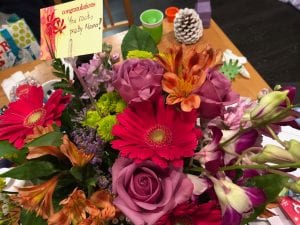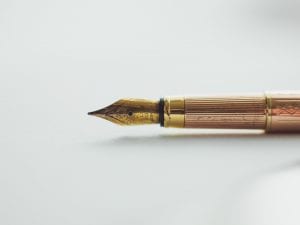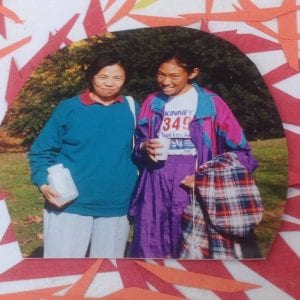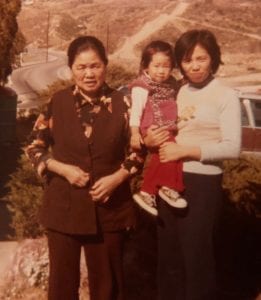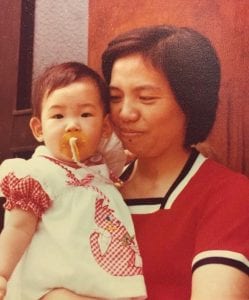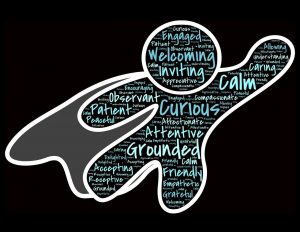The work that is most valuable is often so hard. Ugh.
Yesterday, I was all reflective and hopeful as I wrote down some goals for the new year including being more intentional with my time and energy, setting boundaries and sticking with them, and reading and writing more.
I also wrote this: “I’d like to be kinder to myself. I’d like to make self-care a priority, and take the time and space that I need to do what I know works for my physical, mental and spiritual health. I’d like to feel less guilt and let go of that which I will inevitably feel more quickly.”
Then, of course, I got tested. Because transformation doesn’t come without going through the fire.
These were little tests, but they made me recognize how far I have to go. I’d like to be honest in my struggle, so you also can see how far I have to go:
- I was introduced in an e-mail to students at my son’s school as Mrs. Hsieh. I don’t go by Mrs. Hsieh ever. When referred to by my last name, I go by Ms. Hsieh or Mrs. [Husband’s Last Name] or, preferably, by Dr. Hsieh, which is what I refer to myself as when I need to do the Bob Dole 3rd person self-referencing. I wish this was a great feminist conviction, but it’s not. It’s about accuracy. Correcting this subtly, by signing the e-mail “Dr. Hsieh” should not have been a big deal. I was just claiming my right to be called by a title I’ve earned. It wasn’t calling out the other parent because I understand that the intention was to find the most appropriate title of respect for me. But, let me tell you, the problem. I literally spent a long time (like cumulatively over an hour) stressing about this. Seriously, this is not a big deal. I know that intellectually, but, as I discussed with my son, during dinner, I worried about “coming off” a certain way with the other parent, especially as I don’t feel 100% a part of the school community. I didn’t want to be myself because I was worried about the perception of someone else.
- I was reading (yay, for another part of my resolution) some really powerful work on Asian American feminism and Women of Color Politics and was really struggling, not conceptually or theoretically, but in actually thinking about the ways in which Asian American feminism (specifically) and WOC feminism (more broadly) do and/or do not inform the choices I make and the identities I empower, in so many ways, even in the above incident, in terms of claiming space. But, also in acknowledging the differences in the struggles among Asian American communities (and my own privilege as Taiwanese American) and between Asian Americans and other POC/WOC in the US in ways that build coalition, strengthen solidarity, and are authentic. Though, in writing this, I realize that reading, engaging, and reflecting in these ways are powerful, intentional and critical to my own growth, as a person and a scholar (thus fulfilling multiple goals for the year), I also struggle with a guilty sense of somehow not being enough, of doing the work too late or in the wrong way. My insecurities pull me towards voicelessness and I’m forced to push back in ways that are really uncomfortable for me. I find myself constantly being pulled towards saying what others want to hear to fit in, and that is how I lost my voice in the first place.
- Finally, after all of this reading and reflecting, and guilt, I read a friend’s blog post that landed in a weird way for me, and I said something about it. First off, I don’t like to say anything less than glowingly positive feedback to anyone about anything that they’ve written (unless they ask for critical feedback) because it is such an act of courage to write vulnerably and share broadly. Secondly, this is my friend and brother, and I had a feeling that my response would land critically and might be triggering. But also, this is my friend and my brother, so I had to say something, because sometimes, when we journey together, we need to check each other, especially when something doesn’t sit right with us. Still, the whole thing made me uneasy, probably because it is triggering for me to say something if there’s even a chance that people will react poorly to it. There it was again, this theme not wanting to be myself, or honor my own voice, because I was worried about the perception of someone else.
So all of this is teaching me that I have so far to go. In pushing to challenge the model minority stereotype, which I’ve benefited from extensively, I know that I have to get used to raising my voice in these seemingly small interactions with people in my everyday circles (and of course, beyond them, although this, for some reason, is easier for me), not because it’s an obligation or the right way to enact Asian American feminism, but because, I am tired of self-censorship that doesn’t represent who I really am.
That is scary. It involves imperfect interactions that can be messy and leave me feeling uncomfortable. It involves faith that people and relationships are stronger than the oppressive structures that unconsciously inform our everyday lives. Or that, if they aren’t, and we can’t get through this with me being authentic, then maybe I shouldn’t be investing my time and energy in the ways I tend to automatically.
This is intentional.
This is hard.
Growth is hard.
But I can only move towards my greater work if I can get out of my own way.


